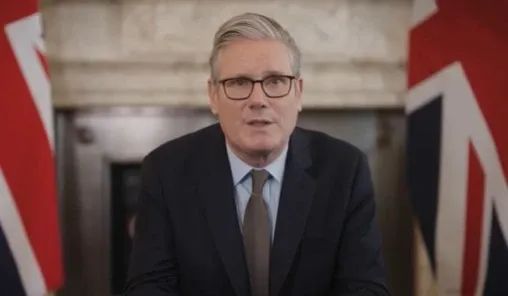Will the British PM's Pledge to Detain and Repatriate Illegal Migrants Resolve the Crisis?

Synopsis
Key Takeaways
- Keir Starmer promises to detain illegal migrants.
- Protests indicate growing public concern over asylum policies.
- Over 32,000 asylum seekers are currently housed in hotels.
- Government aims to close asylum hotels before the next election.
- New plans with France to return migrants are being trialed.
London, Aug 31 (NationPress) British Prime Minister Keir Starmer has committed to detaining and repatriating illegal migrants as the government confronts intensifying pressure to address Channel crossings and the rising concern over asylum hotels.
"I am unequivocal: we will not incentivize illegal entry. If you unlawfully cross the Channel, you will face detention and deportation," Starmer affirmed on the social media platform X on Saturday.
These statements were made during a time when numerous protests took place across England on Saturday, including cities like London, Skegness, and Gloucester, where asylum seekers are currently being accommodated in hotels. Reports indicate that five individuals were arrested in west London, according to Xinhua news agency.
Protests had drawn thousands over the summer, ignited by the arrest of an asylum seeker residing in a hotel who was charged with multiple offenses, including the alleged sexual assault of a 14-year-old girl.
According to Home Office data, the number of asylum seekers residing in hotels surged to over 32,000 in the year leading up to June. The government had vowed to eradicate asylum hotels before the next general election.
Britain and France are experimenting with a plan to return migrants arriving via small boats across the English Channel back to France, in exchange for allowing the same number of asylum seekers to arrive in Britain through legal channels.
However, the scale of this initiative will likely only address a tiny fraction of the total arrivals. As of July 31, over 25,000 individuals had crossed the Channel in small boats in 2025, marking an increase of about 49 percent compared to the same time in 2024, as per Home Office statistics.









